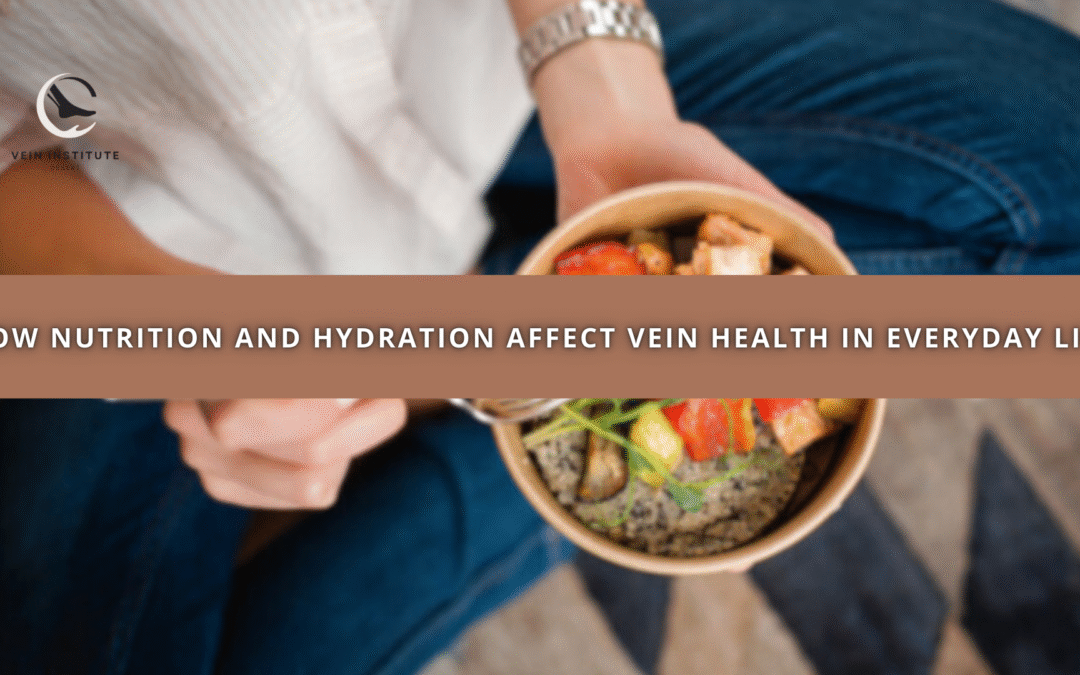Nutrition and Hydration Tips for Healthy Veins
🥗 The Connection Between Diet and Vein Health at Desert Vein Institute
The circulatory system depends on proper nourishment to maintain resilience and elasticity. At the desert vein institute, specialists often highlight how everyday food choices affect long-term vein function. Diets lacking in fiber and rich in processed foods can lead to weight gain and chronic inflammation, both of which increase pressure on veins. Over time, this pressure contributes to the development of varicose or spider veins.
A balanced diet rich in fresh vegetables, fruits, lean proteins, and whole grains provides essential vitamins such as C and E. Vitamin C supports collagen formation, strengthening vein walls, while vitamin E improves circulation by reducing oxidative stress.
Even small changes in daily meals—such as replacing processed snacks with fiber-rich fruits or adding leafy greens—can significantly reduce risks of venous insufficiency. Patients who adopt these adjustments often notice improved energy levels and lighter, less fatigued legs.
💧 Why Hydration Matters According to a Vein Specialist in Palm Desert
A qualified vein specialist in Palm Desert emphasizes that hydration is as important as nutrition for circulatory health. Dehydration thickens blood, making it harder to circulate efficiently. This increases strain on vein valves, especially in the legs where gravity already challenges blood return.
Consistent water intake maintains optimal blood viscosity, helping prevent clot formation and reducing swelling. Patients who struggle with leg cramps or heaviness often see improvement when they increase hydration alongside a balanced diet.
It’s also important to understand that not all beverages offer equal benefits. While water remains the best choice, herbal teas and natural fruit infusions support hydration without excess sugar or caffeine, both of which may dehydrate the body when consumed in excess.
🩺 The Role of Vein Consultation in Preventive Care
For individuals unsure whether their diet and hydration habits are sufficient, a professional vein consultation provides clarity. During a consultation, vein health is assessed through imaging and medical history, offering a complete picture of circulation. Specialists can then recommend specific nutritional adjustments or hydration goals tailored to each patient’s lifestyle.
This preventive approach is especially valuable in regions like Palm Desert, where the hot climate increases the risk of dehydration and circulatory strain. Patients who combine professional guidance with practical changes at home reduce their likelihood of developing advanced venous conditions later in life.
🌿 Everyday Strategies for Stronger Veins
Nutrition and hydration are powerful tools that work hand in hand with medical care. By adopting sustainable habits, individuals can actively protect their vein health.
✅ Practical adjustments include:
- 🥦 Eating high-fiber foods daily to support circulation
- 💦 Drinking enough water throughout the day, especially in warm climates
- 🍊 Incorporating antioxidant-rich fruits like oranges and berries
- 🫛 Choosing legumes and lean proteins to stabilize weight and support muscle tone
🔍 How The Vein Institute of the Desert Supports Patients
In Palm Desert, The Vein Institute of the Desert combines advanced diagnostics with lifestyle guidance, ensuring patients receive both medical treatment and preventive strategies. By addressing diet and hydration as part of comprehensive care, the institute helps individuals reduce risks and improve overall wellness.
Vein health is not determined by genetics alone—it is shaped daily by what we eat and drink. With proper nutrition, hydration, and timely consultations, patients can maintain strong, resilient veins throughout life.

Andy Sharify
The founder and owner of The Vein Institute of the Desert. He oversees the clinic, ensuring exceptional service and a patient-focused approach to vein care. Andy is dedicated to creating a comfortable and supportive environment for every patient.
